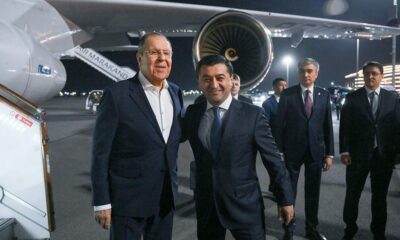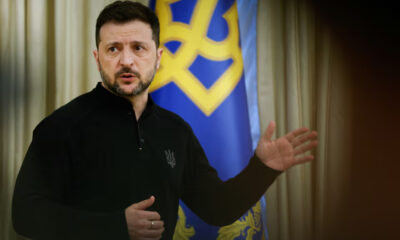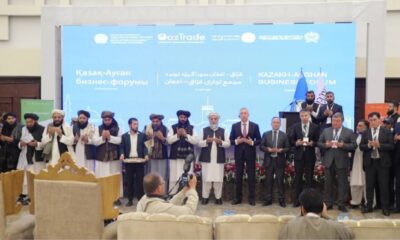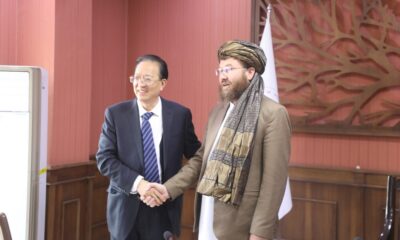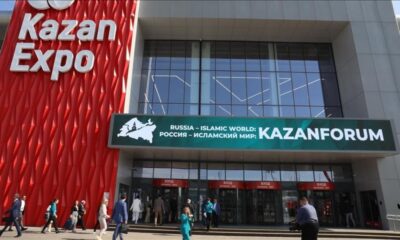Regional
Pakistan clinches last-gasp $3 billion IMF bailout
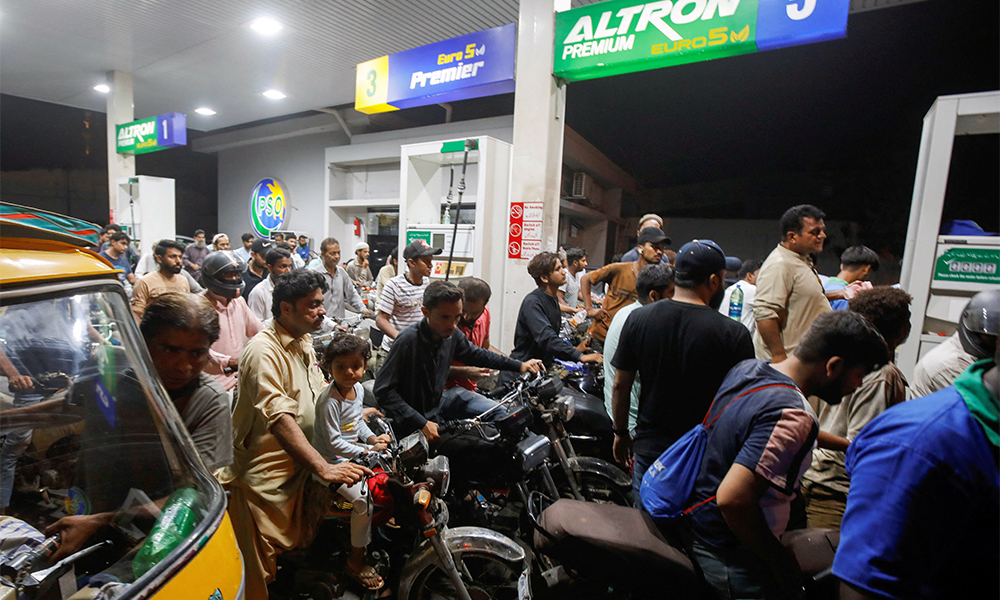
Pakistan secured a badly-needed $3 billion short-term financial package from the International Monetary Fund on Friday, giving the South Asian economy respite as it teeters on the brink of default.
In a long-awaited decision for Pakistan, the IMF said it had reached a staff-level deal with the 220 million nation, which will now be subject to approval by its board in July.
The new nine-month standby arrangement came hours before a current IMF agreement expires, offering relief to Pakistan, which is battling an acute balance of payments crisis.
Prime Minister Shehbaz Sharif said it would put Pakistan “on the path of sustainable economic growth”.
With sky-high inflation and foreign exchange reserves barely enough to cover one month of controlled imports, which analysts say Pakistan’s economic crisis could have spiraled into a debt default in the absence of an IMF deal, Reuters reported.
The deal came only after Sharif held marathon meetings with IMF head Kristalina Georgieva on June 22, which he said represented “a turning point” as the fund’s managing director had not initially appeared very forthcoming.
Pakistan will receive formal documents on the deal later on Friday, Finance Minister Ishaq Dar told Reuters, which he said he would “sign, seal and return by tonight”.
The new deal, which Dar said on Thursday was expected soon, will disburse an upfront amount of $1.1 billion shortly after the IMF board’s meeting in July, he said.
Dar said Pakistan aimed to take the central bank’s foreign exchange reserves to $14 billion by the end of July. “We have stopped the decline, now we have to turn to growth,” he added.
Pakistan’s sovereign dollar bonds were trading higher after the announcement, with the 2024 issue enjoying the biggest gains, up more than 8 cents at just above 70 cents in the dollar, according to Tradeweb data.
The gains were most pronounced in shorter-dated bonds, reflecting lingering skepticism over the longer-term fiscal outlook for the country.
The $3 billion IMF funding is higher than expected as it looks set to replace the remaining $2.5 billion from a $6.5 billion longer-term Extended Fund Facility agreed in 2019.
The deal will also unlock other bilateral and multilateral financing. Long-time allies Saudi Arabia, the UAE and China have already pledged or rolled over billions of loans.
“This will support near-term policy efforts and replenish gross reserves,” the IMF said.
The new arrangement builds on the 2019 programme, IMF official Nathan Porter said in a statement, adding that Pakistan’s economy had faced several challenges in recent times, including devastating floods and rising commodity prices.
“Despite the authorities’ efforts to reduce imports and the trade deficit, reserves have declined to very low levels. Liquidity conditions in the power sector also remain acute,” Porter said.
“Given these challenges, the new arrangement would provide a policy anchor and a framework for financial support from multilateral and bilateral partners in the period ahead.”
Porter also pointed out the power sector’s buildup of arrears and frequent power outages, Reuters reported.
Reforms in the energy sector, which has accumulated nearly 3.6 trillion Pakistani rupees ($12.58 billion) in debt, has been a cornerstone of the IMF talks.
The IMF said it would want steadfast policy implementation by Pakistan to overcome challenges, “particularly in the energy sector”, where it expects a rise in electricity prices.
Dar confirmed that the hike will come ahead of the IMF board review of the bailout, saying the rebasing to be done in July will make about three to four rupees a unit difference.
“Reform does not, must not, mean raising tariff endlessly,” Pakistan’s Minister for Power Khurram Dastgir told Reuters.
With the tenure of the current government ending in August, Dastgir said it had put in place an “aggressive medium-to-long-term plan” to increase renewable energy which was only possible if long-term assistance is available.
Reforms taken
Islamabad has taken measures demanded by the IMF since its mission arrived in Pakistan earlier this year, including revising its 2023-24 budget and a key policy rate hike to 22% in recent days.
It also got Pakistan to raise more than 385 billion rupee ($1.34 billion) in new taxation to meet the IMF’s fiscal adjustments.
The IMF said the central bank should remain proactive to reduce inflation and maintain a foreign exchange framework.
The painful adjustments have already fuelled all time high inflation of 38% year-on-year in May.
“The FY24 budget advances a primary surplus of around 0.4 percent of GDP,” Porter said, adding it will be important that the budget is executed as planned, and authorities resist pressures for unbudgeted spending or tax exemptions.
“This new programme is far better than our expectations,” said Mohammed Sohail of Topline Securities in Karachi, adding there while were a lot of uncertainties on what would happen after a new government comes to power it would “definitely help restore some investor confidence”.
‘Tough journey’ ahead
Meanwhile, on Friday night, Pakistan’s Prime Minister Shehbaz Sharif took to twitter and said while the IMF stand-by agreement “is a much-needed breather, which will help the country achieve economic stability, the nations are not built through loans. I pray for this new program to be the last one.”
He went on to thank Pakistan’s “friends & partners such as China, Saudi Arabia, UAE & Islamic Development Fund for standing by Pakistan at the time of massive economic challenges.
“Under a whole-of-the-government approach, we have worked out an Economic Revival Plan, which will focus on unlocking our strategic potential in agriculture, mine & minerals, defense production & information technology. The Plan will bring up investments of billions of dollars & create job opportunities for four million people.
“It may be a tough journey but as they say, ‘When the going gets tough, the tough gets going’,” he said.
Regional
Lavrov in Uzbekistan for talks on various issues including regional security matters
Lavrov is expected to meet with Uzbek President Shavkat Mirziyoyev and with Uzbek Foreign Minister Bakhtiyor Saidov
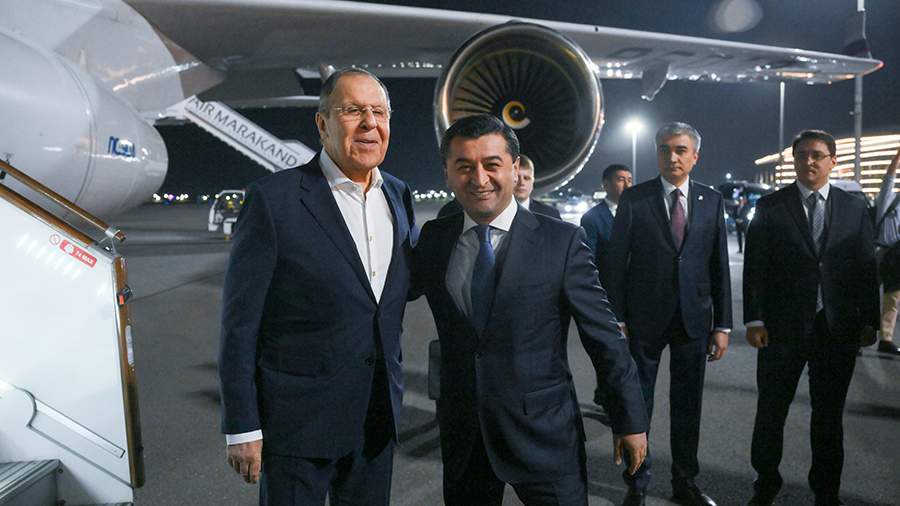
Russian Foreign Minister Sergey Lavrov will meet with Uzbek government officials this week to discuss bilateral relations, Eurasian integration and preparations for the upcoming 80th anniversary of victory over Nazi Germany.
The Russian Foreign Ministry’s official spokeswoman, Maria Zakharova, said Lavrov is expected to meet with Uzbek President Shavkat Mirziyoyev and will hold talks with Uzbek Foreign Minister Bakhtiyor Saidov, TASS reported.
“The sides will discuss current international issues of mutual interest, regional security matters, cooperation within the CIS, SCO and Central Asia-Russia frameworks, taking into account the closeness or similarity between Moscow and Tashkent’s approaches,” Zakharova said adding that “the agenda will also include matters of Eurasian integration processes with Uzbekistan’s observer status in the EAEU in mind.”
During his meetings with leaders of the Commonwealth of Independent States (CIS) last December, Russian President Vladimir Putin invited them to attend the Victory Day celebrations in Moscow scheduled to be held on May 9.
Also, military units from 19 friendly nations have been invited to participate in the Red Square Parade. The list of these countries has not yet been published, but Uzbek troops marched in the Red Square five years ago, during the 75th anniversary of Victory in the Great Patriotic War.
Uzbekistan traditionally holds numerous Victory Day celebrations and campaigns.
Meanwhile, the Russian Foreign Ministry has emphasized that Moscow and Tashkent have “constructive, respectful and mutually beneficial ties, based on the principles of friendship, sovereign equality and respect to each other’s interests.”
The sides actively cooperate in trade, energy, science and humanitarian affairs.
Special attention will be paid to the issue of labor migrants, as around 1.1 million Uzbek citizens are employed in various sectors in Russia.
Talks will also reportedly include Afghanistan, as this is an important subject for the two nations, TASS reported.
Other regional and global issues are also expected to be touched upon during Lavrov’s meetings with Uzbek officials in Samarkand.
Regional
At least 20 feared killed in militant attack on tourists in Indian Kashmir, security sources say
One security source put the death toll at 20; the second put it at 24 and the third at 26. All three spoke on condition of anonymity as they were not authorised to speak to the media.
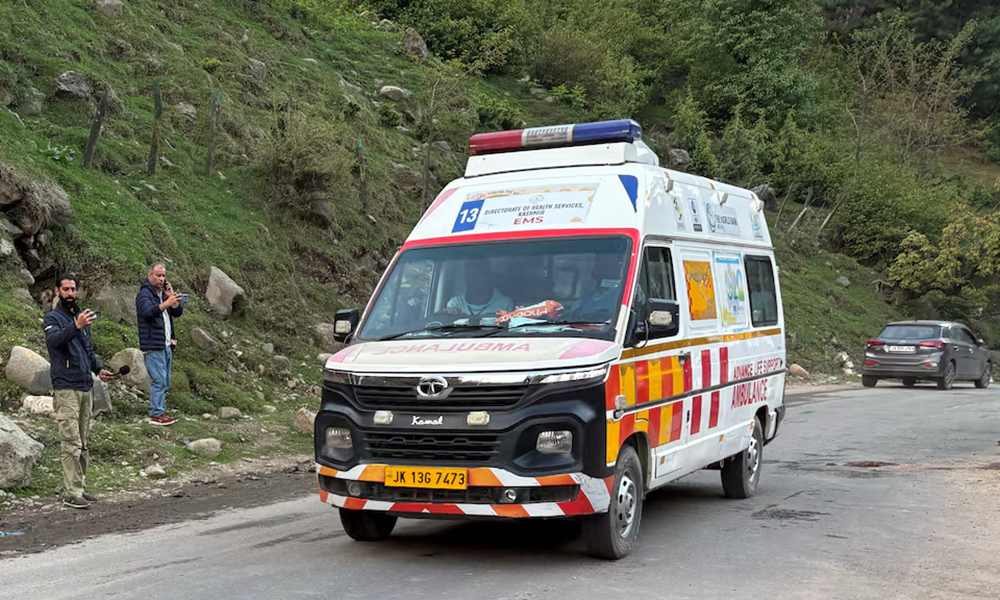
At least 20 people were feared killed after suspected militants opened fire on tourists in India’s Jammu and Kashmir territory on Tuesday, three security sources said, the worst attack on civilians in the troubled Himalayan region for years, Reuters reported.
The attack occurred in Pahalgam, a popular destination in the scenic, mountainous region where mass tourism, especially during the summer, has resurged as Islamist militant violence has eased in recent years.
One security source put the death toll at 20; the second put it at 24 and the third at 26. All three spoke on condition of anonymity as they were not authorised to speak to the media.
“The firing happened in front of us,” one witness told broadcaster India Today, without giving his name. “We thought someone was setting off firecrackers, but when we heard other people (screaming), we quickly got out of there … saved our lives and ran.”
“For four kilometers, we did not stop … I am shaking,” another witness told India Today.
The attack occurred in an off-the-road meadow and two or three militants were involved, the Indian Express newspaper reported, citing an unidentified senior police officer.
“The death toll is still being ascertained so I don’t want to get into those details,” Jammu and Kashmir Chief Minister Omar Abdullah said in a post on X. “Needless to say, this attack is much larger than anything we’ve seen directed at civilians in recent years.”
The nationalities of the victims were not immediately known, read the report.
A little-known militant group, the “Kashmir Resistance,” claimed responsibility for the attack in a social media message. It expressed discontent that more than 85,000 “outsiders” had been settled in the region, spurring a “demographic change”.
“Consequently, violence will be directed toward those attempting to settle illegally,” it said.
Reuters could not independently verify the source of the message.
The regional government of Jammu and Kashmir, where Pahalgam is located, told its legislature this month that nearly 84,000 non-locals, from within India, had been given domicile rights in the territory in the last two years.
“Those behind this heinous act will be brought to justice … They will not be spared!” Indian Prime Minister Narendra Modi posted on X. “Their evil agenda will never succeed. Our resolve to fight terrorism is unshakable and it will get even stronger.”
Indian Home Minister Amit Shah said he was rushing to Kashmir to hold a security meeting.
In Washington, the White House said U.S. President Donald Trump had been briefed on what a White House spokesperson described as a “brutal terrorist attack.”
India’s foreign ministry subsequently said Trump called Modi and “expressed full support to India to bring to justice the perpetrators of this heinous attack.”
Militant violence has afflicted the Himalayan region, claimed in full but ruled in part by both India and Pakistan, since an anti-Indian insurgency began in 1989. Tens of thousands of people have been killed, although violence has tapered off in recent years, Reuters reported.
India revoked Kashmir’s special status in 2019, splitting the state into two federally administered territories – Jammu and Kashmir, and Ladakh. The move allowed local authorities to issue domicile rights to outsiders, allowing them to get jobs and buy land in the territory.
That led to a deterioration of ties with Pakistan, which also claims the region. The dispute has spurred bitter animosity and military conflict between the nuclear-armed neighbours.
Attacks targeting tourists in Kashmir have become rare. The last deadly incident took place in June 2024 when at least nine people were killed and 33 injured after a militant attack caused a bus carrying Hindu pilgrims to plunge into a deep gorge.
Some major militant attacks during the height of the insurgency coincided with visits from high-profile foreign officials to India, in likely attempts to draw global attention to Kashmir, Indian security agencies have said.
Tuesday’s attack came a day after U.S. Vice President JD Vance began a four-day, largely personal visit to India.
Regional
Iran’s top diplomat to visit China on Tuesday
In a trip to Moscow last week, Araqchi told state TV that Tehran always closely consults with its friends, Russia and China, over the nuclear issue.
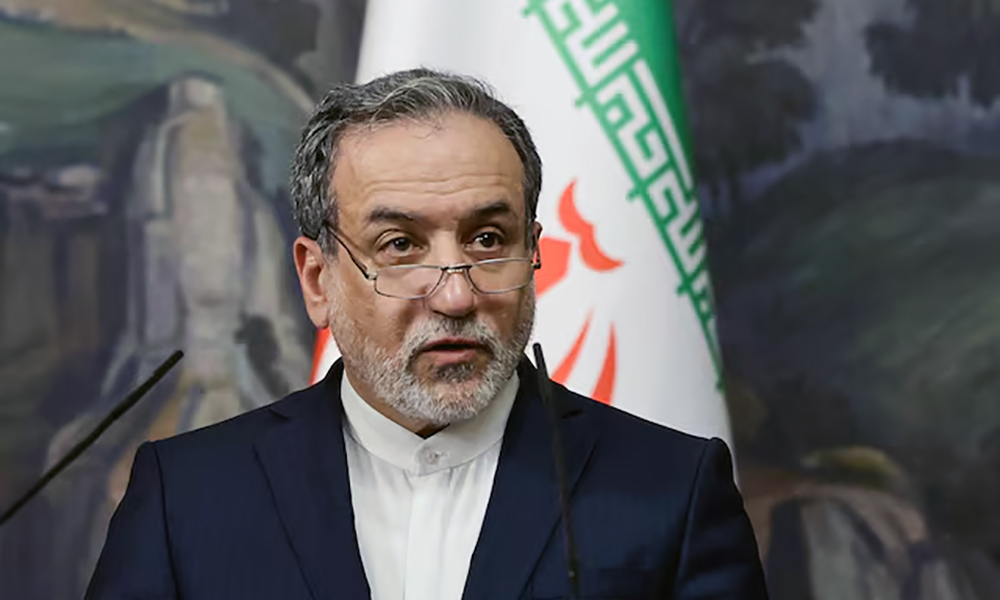
Iran’s Foreign Minister Abbas Araqchi will visit China on Tuesday, foreign ministry spokesperson Esmaeil Baghaei said on Monday, ahead of a third round of nuclear talks between Tehran and Washington due on Saturday in Oman.
In a trip to Moscow last week, Araqchi told state TV that Tehran always closely consults with its friends, Russia and China, over the nuclear issue.
“It is natural that we will consult and brief China over the latest developments in Iran-U.S. indirect talks,” Baghaei said, adding that Beijing can play a constructive role in this process.
Long-time foes Iran and the U.S. started negotiations earlier this month with the aim of placing limits on Tehran’s nuclear programme, which Western powers say is geared toward developing nuclear weapons.
Tehran has long denied such accusations and seeks in exchange the lifting of U.S. sanctions that were re-imposed by President Donald Trump during his first term in office (2017-2021), when he withdrew from a 2015 nuclear pact between Iran and world powers, including China and Russia.
Since taking office in January, Trump has ratcheted pressure on Iran and has for the first time sanctioned Chinese “teapot” refineries – small, independent plants – that process Iranian crude oil and have provided an economic lifeline to Tehran’s squeezed economy.
“The policy of maximum pressure is not just against Iran but also other countries and goes against freedom of trade. In the case of China, sanctions also seek to disrupt south-south cooperation,” Baghaei said.
Beijing accounted for at least 77% of Iran’s roughly 1.6 million bpd of exported crude in 2024, according to analytics firm Kpler. The value of Iran’s crude sales to China is not officially disclosed, but a Reuters calculation puts the trade at nearly $29 billion last year, assuming a 20% discount to Brent crude prices to include the cost of logistics.
“China and Iran have maintained exchanges and contacts at all levels and in various fields. With regard to the specific visit mentioned, I have no information to offer at the moment,” Chinese Foreign Ministry spokesperson Guo Jiakun said on Monday regarding Araqchi’s upcoming visit.
-
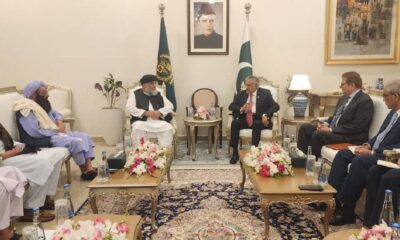
 Latest News5 days ago
Latest News5 days agoAzizi and Ishaq Dar discuss bilateral issues in Islamabad
-
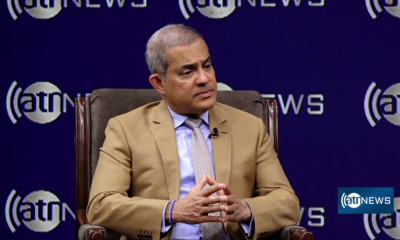
 Latest News5 days ago
Latest News5 days agoEngagement and diplomacy key to solving Afghanistan’s challenges, says Ratwatte
-

 Sport4 days ago
Sport4 days agoAfghanistan qualify for U19 Cricket World Cup 2026
-

 Regional4 days ago
Regional4 days agoDeadliest US strike in Yemen kills 74 at oil terminal, Houthis say
-
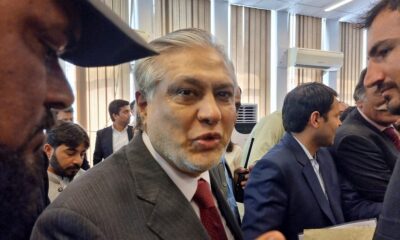
 Latest News5 days ago
Latest News5 days agoPakistan’s deputy prime minister to visit Kabul Saturday
-

 World3 days ago
World3 days agoThousands of protesters rally against Trump across US
-

 World4 days ago
World4 days agoIran, US end nuclear talks in Rome, agree to meet next week
-

 Latest News3 days ago
Latest News3 days agoPolio vaccination campaign launched in Afghanistan


